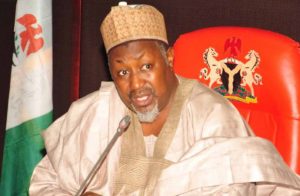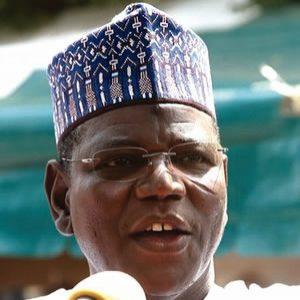Is there nowhere in contemporary Nigeria with a story of successful containment of herdsmen violence? Would it not make eminent sense to relate to such a story in the context of current concentration of attention on curtailing the threat, being the most current manifestation of the Nigerian crisis?

Alhaji Mohammad Badaru Abubakar, the incumbent governor of Jigawa State under whom no new outbreak of herdsmen violence has been reported
The point is that Kiri-Kasama LGA of Jigawa State was the theatre of war and blood, including beheading, making Jigawa State the perfect case study of herdsmen violence in Nigeria between 1994 and 2007. In 2008, under the Sule Lamido regime, the nonsense was successfully and completely stopped. It was the same Nigeria Police Force, DSS and such other members of the law and order establishment as well as traditional rulers he worked to get results.
This is bound to be a controversial example for the reason that Sule Lamido, the former governor of Jigawa State around whom it revolves is reported to be a presidential aspirant and this report could easily be misinterpreted as campaigning for him. But, in Nigeria’s circumstance today, it is not an act of favour to make reference to Lamido’s model of herdsmen containment but an act of directing society’s attention to a resource for problem solving, the society now being in conflict with itself. There is, therefore, no virtue in not making a limited reference to Lamido’s approach to illustrate leadership/power/governance in resolving intractable conflict.
Jigawa State is a much smaller and less complex community when compared to mega Nigeria. But it has its own complexity. Kiri-Kasama, the local government where the violence was most concentrated because of the wetland it is, is predominantly inhabited by people of Kanuri identity. They are a minority when it comes to larger Jigawa politics. A governor of Fulani identity could choose to either ignore or mismanage the problem, for whatever reasons. Two, that violence had its international character in terms of migrants from countries sharing contiguous borders with Nigeria. Three, a key security institution of the Nigerian State did write to the Jigawa State Government asking for documentation on how it approached maintenance of security.

Alhaji Sule Lamido under whom herdsmen violence was completely contained in 2008
All these show how the Jigawa example may not be totally irrelevant to today’s crisis and might merit further reflections for any nugget of wisdom that it might contain which might be relevant to managing the current crisis. This is because such documents are no longer the property of any individual incumbent or former governor or of any one state of the federation, political party or gubernatorial aides but property of the whole society now.
This is more so as Nigeria relates with the list of resolutions Yakubu Dogara, the Speaker of the House of Representatives just reeled out and by which the House expected the herdsmen related complications to have been resolved. Successive leadership/power/governance failed to translate those resolutions into any meaningful outcomes. It is thus correct to say that security and insecurity necessarily assume the character of governance. While the herdsmen crisis is substantially traceable to the contradiction between transhumance and the current level of society’s material development, it is more fundamentally a product of bad leadership, misuse of power and bad governance over time. This does not apply to the Buhari regime alone even as its own lethargy in responding to it is of legendary proportion. Herdsmen violence can be solved. It has been solved somewhere before although on a smaller scale but in a way that shows the country the possibility of successfully and completely resolving it. Without going into the mechanics of how success was achieved, there is a lesson there: if a nation or a region or a community has a leader who did not, consciously or otherwise, constitute himself into an interested or conflict party, any problem can be solved.




























